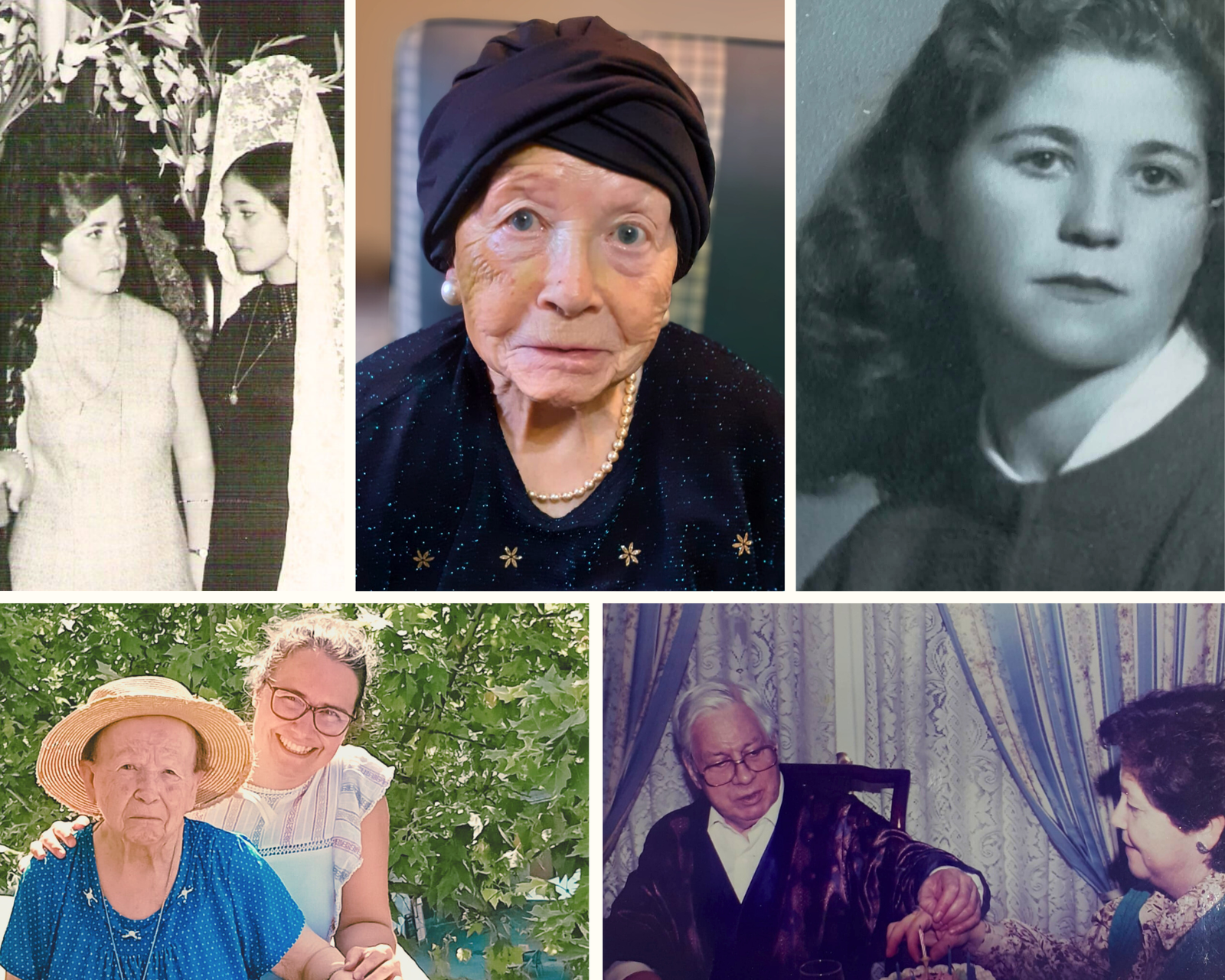
by f. Luis CASASUS. President of the Idente Missionaries.
Rome, December 04th, 2022 | Second Sunday of Advent.
Isaiah 11:1-10; Romans 15:4-9; Mt 3:1-12.
We do not need to know whether St. John the Baptist committed many sins or none at all. There is one sign in his life that is immediately clear to his contemporaries and to us: His life bore fruit because he underwent a conversion. That is what St. Matthew says about him today. He was faithful to what the prophet Isaiah said: he left his more or less comfortable life, went to the desert, lived austerely and dedicated all his time to others, proclaiming with humility that he did not have the keys to authentic perfection, but one who would come after him and was greater than he.
This continuous effort to dedicate one’s conversion to “good fruits”, that is, the joyful conversion of one’s neighbor, is a characteristic of the saints, of the saint that you and I must be. It is relatively easy (and for some, pleasant) to organize activities, to lead an orderly life of study or teaching, of laboriousness in which one’s talents become visible. But the joyful conversion of others requires only one more ingredient: my own conversion.
A remarkable example. St. Teresa of Avila, the famous Spanish saint, lived at the end of the later mediaeval period. Up to that time, people for the most part acknowledged God to be the one who gave meaning to the universe and to human existence in particular.
The Reformation broke down the unity of faith in Europe. The modern period, beginning with the Renaissance and then the Enlightenment gradually gave rise to a new way of looking at the relationship between God and man.
The new focus on science, together with the enthusiasm for voyages of discovery, gave rise to a new confidence in the power of human reason. Gradually a new world view began to develop. There was no longer any truth, other than scientific truth; everything else, including faith in God, was just opinion and of course everyone was entitled to his or her opinion. People began to think that it was human beings who gave meaning to their own existence. God was relegated to a spiritual world which was quite separate from the world in which people lived and worked.
While living an enclosed contemplative life, she was actively concerned with the well-being of the sisters in monasteries spread across Spain, and she was not by any means removed from the concerns of the world around her, outside the monastery.
She understood that any institutional reform had to begin with personal conversion. She was already living a committed religious life at the convent in Avila, but she became increasingly conscious of the difficulty of finding intimacy with Christ among the distractions of a busy convent, where doing might seem to be more important than being. Teresa felt that she had been living her religious life with a degree of half-heartedness, and without the care that would lead her closer to God. She wanted to turn to Christ with all of her being, and that is the real meaning of conversion.
She sought a smaller, quieter place, and a simpler life-style which she felt would be more in keeping with the Carmelite hermetical tradition. Eventually she moved out of the convent in Avila and, with some others, established a smaller community nearby.
I think the example of St. Teresa is particularly interesting, because she was an active and practical person, but she understood the priority of her own conversion over any other initiative…… and we all know what fruits this resolute attitude bore for Carmel and for the whole Church.
—ooOoo—
Sometimes, our experience and better attitudes are not enough to achieve fruits… some form of conversion, of repentance, is missing. Something has to be left, something has to be abandoned in us that seems to be part of our life and often we think that it is not possible or necessary to leave it. In practice, we do not feel that conversion is linked to the apostle’s task. We limit ourselves to thinking and saying that the apostolic life “demands much prayer”. Those who are mothers can recall the many sacrifices involved in bearing new life in the womb, in giving birth, and in rearing the child. New life and self-sacrifice go hand in hand. You cannot have one without the other.
This is how Pope Francis recognized it a few years ago:
The condition for entering and being a part of this kingdom is to implement a change in our life, which is to convert, to convert every day, to take a step forward each day. It is a question of leaving behind the comfortable but misleading ways of the idols of this world: success at all costs; power to the detriment of the weak; the desire for wealth; pleasure at any price. And instead, preparing the way of the Lord: this does not take away our freedom, but gives us true happiness. (DEC 4, 2016)
There is a story in the Desert Fathers similar to the account of the adulterous woman brought before Christ.
A certain brother in a monastery fell into disgrace. He came before the superior of the monastery and together with him came many brothers who, wishful to restore him to proper monastic discipline, overwhelmed him with reproaches.
Now another older monk was also present and told the brothers a parable they had never heard before. “I saw,” he said, “on the bank of the river a man sunk to his knees in the mud; and some came up with outstretched arms to pull him out, and they sunk him to the neck.”
Then the superior said: “Behold a man who can truly heal the soul.” Hearing these words, the brothers were cut to the heart, repented of their overzealous tactics, and restored the erring brother to the community. In a similar spirit another brother said: “A proud and ill word would turn good men to evil, but a good and humble word would turn evil men to better.” And another monk, echoing the words of Jesus, added: “The devil cannot cast out devils.”
—ooOoo—
We, especially, Idente missionaries, could ask ourselves: What is the clearest, most explicit way in which our Father and Founder speaks to us about the power of this conversion? In my opinion, when he invites us to live the true Evangelical Abnegation in its three dimensions: my judgments, my desires and my instinct for happiness.
It is impossible to “annihilate” my judgments, desires and instinct for happiness. That is not the point, since, as with our thoughts, these are three processes that are continuously active. That is why conversion must be permanent, constant, a true Canon in the ascetical life. Some of us may think that it is an effort to be made at certain moments when the passions come to the surface with force.
This is not so. It is not only that. If we remember that the word “conversion” means among other things “to revolve, to turn one’s gaze”, we will understand that it is one of the supreme efforts of the ascetic, to free the eyes of the soul from so many attractions that absorb us, without entering into their moral qualification. Only in this way do we allow God (yes, you read that right) to manifest Himself through our life.
Our Father and Founder explains it with precision when he speaks of the Purification that the Holy Spirit continually performs in us: God does not want, cannot accept, not even by his very essence, that we unite ourselves [with Him] if not with a bond in Christ, the only-begotten Son and first-born of all human beings (15 JAN 1983). The Spirit can do everything, but he commits himself to do it WITH US: this is how the fruits are produced in the life of the apostle.
Some think these counsels regarding self-denial and abnegation mean that the spiritual life is supposed to be a joyless affair. But really the more we renounce joys that are beneath our dignity, the more room we have for a deeper and more abiding joy. There are some great joys that in fact give God glory when we share them. There is also a sweetness found in secretly bringing joy to others, although those who have gone before us in the faith probably smile when we share this foretaste of our heavenly homeland. We enjoy these wonderful works of God because, comfortable and pleasurable though they are in themselves, they raise us up out of self-pre-occupation to our true purpose, and in doing so they help us behold the splendor of the One in whose image we are made.
It is true that Christmas is a time of joy, but Advent has a form of spiritual joy that St. John the Baptist undoubtedly experienced when he saw that his radical conversion, material and spiritual, carried out in the desert, led him to be an instrument of Providence, seeing that Jerusalem, all Judea, and the whole region around the Jordan were going out to him and were being baptized by him in the Jordan River as they acknowledged their sins. Regardless of the numbers, we can feel the same joy when we modestly manage, with our fasting and prayer, to help one or thousands of people to encounter the person of Jesus.
The Baptizer teaches us not to be discouraged because we sometimes feel like a voice crying in the wilderness. Surely he intuitively sensed, with the passing of time, what the end of his days would be like, but he received from God the consolation of seeing his disciples draw closer to Christ. That must be the consolation for us, as apprentice apostles, as missionary disciples, in the words of Pope Francis.
May we understand that Christ, the man most alien to sin, continually converted himself in this way as he passed through this world.
May we dare to experience it this way, even if only a little more, this Advent.
DOWNLOAD PDF











